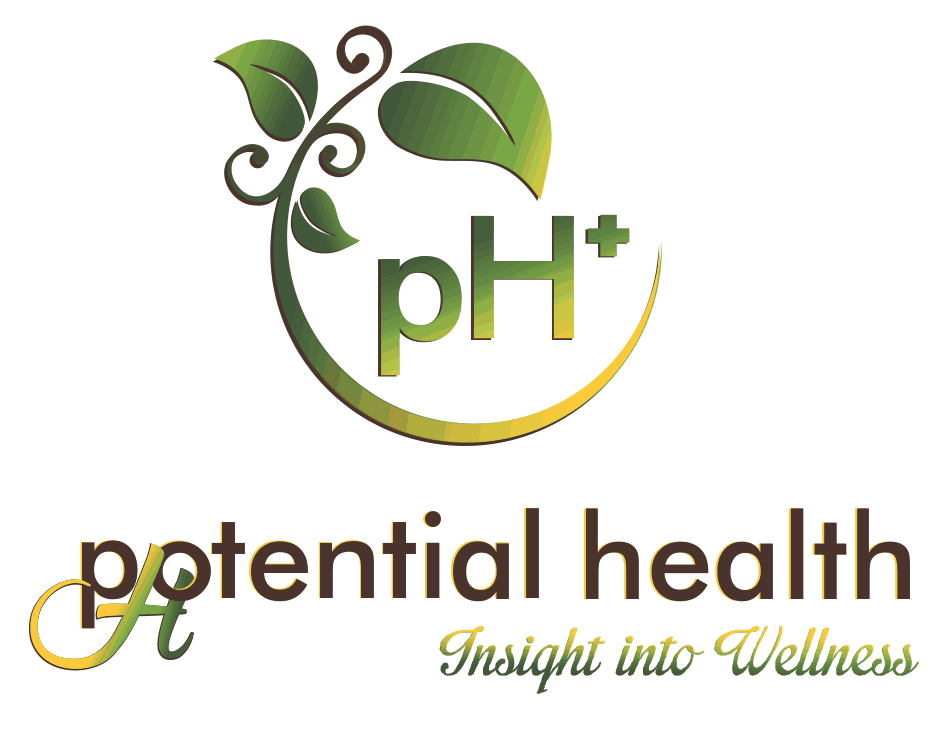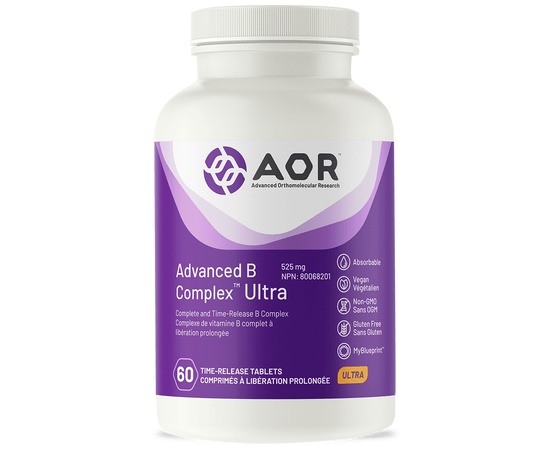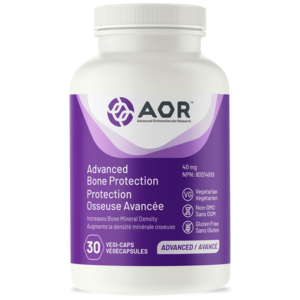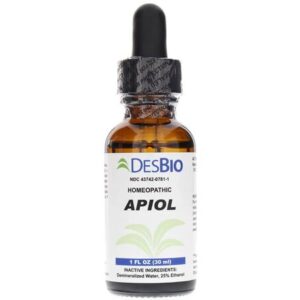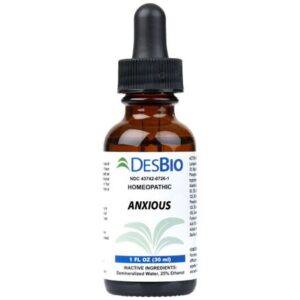Description
Details
Advanced B Complex Ultra is based on Advanced B Complex®, our award-winning favorite, with additional benefits for heart health, brain health, and energy. Advanced B Complex Ultra utilizes time-release technology to enhance absorption and provides the full spectrum of B vitamins, some of them in multiple forms, for superior efficacy in the body.
Advanced B Complex Ultra is formulated with niacin, the most active form of vitamin B3, and the most effective for heart health and cholesterol. It contains a safe dose of slow-release niacin to minimize the sensation of “flushing”. Advanced B Complex Ultra is unique in that it also contains Pyrroloquinoline quinone (PQQ), a B-vitamin-like nutrient that helps support brain health.
Advanced B Complex Ultra is perfect for anyone looking to get beyond the standard benefits of B vitamins.
AOR Advantage
Advanced B Complex Ultra is the most cutting-edge and effective B complex available on the market. It offers unique and active forms of B vitamins which have additional health benefits not usually included with B complex supplements. For example, niacin is more effective for managing cholesterol levels and supporting heart health than synthetic B6. PQQ is a B-vitamin-like nutrient and antioxidant which has been shown to reduce oxidative damage and inflammation as well as improve mitochondrial function. Finally, Advanced B Complex Ultra provides three important forms of vitamin B12: Methylcobalamin, cobamamide, and hydroxocobalamin, each of which has an important function.
Label InformationNPN
80068201
Discussion
Advanced B Complex Ultra provides the most active forms of B vitamins in clinically-supported doses and in ratios that the body can utilize, in a time-release formula, for optimal results. With the addition of antioxidant PQQ. These nutrients help metabolize carbohydrates, proteins, and fats for energy and support tissue and red blood cell formation.
Guarantees
AOR™ guarantees that all ingredients have been declared on the label. Contains no wheat, gluten, corn, nuts, peanuts, sesame seeds, sulphites, mustard, soy, dairy, eggs, fish, shellfish, or any animal byproduct.
Adult Dosage
Take one tablet one to two times daily with food, or as directed by a qualified health care practitioner.
Cautions
People sensitive to nicotinic acid may experience flushing of the skin that is generally mild and transient. Consult a health care practitioner prior to use if you are pregnant, breastfeeding, or for use beyond six weeks. May cause colds, abdominal symptoms, headache, fatigue, and diarrhea.
Main Applications
- Energy
- Heart health
- Brain health
The information and product descriptions appearing on this website are for information purposes only, and are not intended to provide or replace medical advice to individuals from a qualified health care professional. Consult with your physician if you have any health concerns, and before initiating any new diet, exercise, supplement, or other lifestyle changes.
Supplement Facts Serving Size: Two Tablets
Serving Size: Two Tablets
B1 Thiamine (Benfotiamine, Sulbutiamine)
100 mg
B2 (Riboflavin-5-phosphate sodium)
10 mg
B3 (Niacin)
30 mg
B5 (calcium D-pantothenate, Pantethine)
300 mg
B6 (Pyridoxal-5’-phosphate)
50 mg
B12 (Methylcobalamin, Hydroxocobalamin, Cobamamide)
1000 mcg
Folic acid (calcium L-5-MTHF)
1000 mcg
Biotin
500 mcg
Choline (bitartrate)
246 mg
myo-Inositol
308 mg
Pyrroloquinoline Quinone (disodium salt)
2.5 mg
Non-medicinal Ingredients: microcrystalline cellulose, sodium stearyl fumarate, hyprolose, xanthan gum, hypromellose, gum Arabic, glycerine, silicon dioxide, dicalcium phosphate.
Research Facts
Cognitive Health
Study 1:
A meta-analysis published in 2015 reviewed studies that evaluated the effects of vitamin B12 and/or folate, when compared to a placebo in the treatment of clinical depression. This analysis reviewed randomized, controlled trials in depressive symptoms and disorders, narrowing 269 manuscripts down to 11 peer-reviewed publications. The results show that short-term use of vitamins – days to weeks – was insufficient to improve depressive symptoms in patients with major depression, however, longer consumption (weeks to years) was effective in reducing the risk of relapse and the onset of clinically significant symptoms in people at risk of major depressive disorders.
https://www.ncbi.nlm.nih.gov/pubmed/25644193
Study 2:
Another systematic review and meta-analysis published in 2019 reviewed all publications with the term “B-vitamins or a variation of that, mood, depress/depression, and terms relating to the design of the study. Studies were included in the analysis if they included at least 3 B vitamins for at least 4 weeks of supplementation. Eighteen articles were included, of which 12 were eligible for the meta-analysis. This review provides evidence for the benefits of B vitamin supplementation in healthy and at-risk populations for stress, but not depressive symptoms. The authors conclude that vitamin B complex supplementation may be particularly beneficial in populations who are at risk, due to poor nutrient and mood status.
https://www.ncbi.nlm.nih.gov/pubmed/31527485
Study 3:
In a cross-sectional study in an indigenous population of India, 303 participants, aged 25-65 years of age were recruited to evaluate the association of B12 and folate deficiencies and MTHFR C677T gene polymorphism in depression and generalized anxiety disorder. Results show that although vitamin B12 and folate status was not found to be directly associated with depression and GAD, hyperhomocysteinemia was posing more than three folds and six folds significantly increased risk for depression and GAD, respectively. Further, it seems hyperhomocysteinemia was mediated by vitamin B12 deficiency among depressed and anxious individuals.
https://www.sciencedirect.com/science/article/abs/pii/S2405457718306260
Study 4:
This randomized, double-blind, placebo-controlled clinical trial in Taiwan looked at the effect of multivitamin supplementation, containing vitamins B6, B12, and folic acid, in combination with a cholinesterase inhibitor in Alzheimer’s Disease (AD) patients. The hypothesis for this study is due mainly to the fact that elevated serum homocysteine levels have been associated with the development of AD. The results of this study show that 26 weeks of supplementation decreased homocysteine concentrations, although no significant effects were observed on cognition or the performance of activities of daily living, in comparison to the placebo group.
https://www.ncbi.nlm.nih.gov/pubmed/18042476
Study 5:
The symptoms of premenstrual syndrome (PMS) include depression, stress, mood swings, crying spells, irritability, anger, confusion, sleep disorders, clumsiness, social withdrawal, fatigue, abdominal cramping, breast tenderness, headache, stomachache, back pain, food cravings, bloating, and changes in libido. A systematic review and meta-analysis published in 2016 reviewed the effects of vitamin B6 on PMS symptoms. The results of the meta-analysis confirm the role of continuous B6 supplementation in relieving PMS symptoms.
http://eprints.skums.ac.ir/988/1/16.pdf
Study 6:
Choline is the precursor to acetylcholine, a neurotransmitter that promotes brain function, and deficiencies in this neurotransmitter are associated with impaired cognitive function, memory loss and Alzheimer’s disease (AD). The objective of this cohort study was to determine whether choline supplementation enhances cognitive function and brain morphology in a large, dementia-free, community-based cohort. 1391 subjects we recruited for this study, over a 4-year period – cohort I (1991 – 1995) and cohort II (1998 – 2001) – and four neuropsychological factors were tested for efficacy, including verbal memory, visual memory, verbal learning, and executive function. The results show that the performance of verbal memory and visual memory was higher in the choline supplementation group, compared to the non-supplementation group. Higher concurrent choline intake was associated with better cognitive performance.
https://www.ncbi.nlm.nih.gov/pubmed/22071706
Study 7:
Studies have shown an inverse relationship between low choline levels and cognitive performance. The aim of this study was to observe the role of choline in older volunteers with inefficient memories. 95 adults between the ages of 80 and 85 years were randomized in this double-blind, placebo-controlled, parallel-group clinical trial and screened for dementia, memory disorders, and other neurological disorders – only 32 with inefficient memories participated in the study.
The results show an increase in plasma concentrations, with supplementation but more importantly, choline supplementation improved delayed recall on logical memory. In the crossover study, choline supplementation was clearly associated with improved immediate and delayed logical memory.
https://www.ncbi.nlm.nih.gov/pubmed/8624220
Study 8:
In children, whose mothers had been supplemented with choline – 63 mg/day (along with Vitamin B12, betaine, and folate), during the second semester, was associated with improved visual memory when measured at age 7. The study adjusted for other maternal characteristics and show that the intake of other nutrients was not associated with the cognitive tests administered.
https://www.ncbi.nlm.nih.gov/pubmed/23425631
Cardiovascular Benefits
Study 1:
A meta-analysis published in 2013 reviewed 14 randomized, controlled trials that assess the effect of B-vitamin supplementation on lowering homocysteine levels and the role on cerebrovascular disease risk. The analysis of all 14 studies showed a reduction in overall stroke events, resulting from the reduction in homocysteine levels, following B-vitamin supplementation, in comparison to control groups. The analysis of the different subgroups of strokes (primary vs secondary, ischemic vs hemorrhagic, etc.) did not show significant differences. These results led the authors to conclude that B vitamin supplementation for homocysteine reduction significantly reduced stroke events, especially in subjects with certain characteristics who received appropriate intervention measures.
https://n.neurology.org/content/81/15/1298
Study 2:
This study aimed to determine the role of vitamin B6 supplementation in myocardial infarction (MI) risk in older women. The Nurses’ Health Study cohort was established in 1976 when 121,700 female registered nurses, 30–55 years of age, completed and returned a mailed questionnaire in order to study the relationship between diet and lifestyle and subsequent disease. The cohort continues to be followed every 2 years by questionnaire to update exposure status and to identify cases of newly diagnosed disease. The results from this study showed that fasting plasma concentration of pyridoxal phosphate was inversely associated with MI risk and plasma B6 levels were correlated with Vitamin B6 supplementation and inversely associated with renal function and body mass index.
https://www.ncbi.nlm.nih.gov/pmc/articles/PMC2833014/
Pregnancy
Study 1:
A systematic review of 22 studies, in more than 1000 children, evaluating the impact of folic acid supplementation on neurodevelopment, with the search, restricted to use of folic acid, randomized clinical trials, and pregnancy terminology, as well as neurodevelopment related terms. The results of these studies show a beneficial effect of folic acid supplementation on neurodevelopment and autism
https://journals.plos.org/plosone/article?id=10.1371/journal.pone.0165626
Study 2:
Vitamin B12 deficiency is also associated with poor pregnancy outcomes. A placebo-controlled, randomized clinical trial evaluated whether daily oral vitamin B-12 supplementation during pregnancy increases maternal and infant measures of vitamin B-12 status. Oral supplementation of 50 mcg vitamin B12 over a 6 week period post-partum was associated with an increase in material breast milk and both material and infant measures of B12 status. Infant plasma methylmalonic acid and homocysteine concentrations were significantly lower in the vitamin B-12 group as well.
https://www.ncbi.nlm.nih.gov/pubmed/24598885
Study 3:
As with the previous summary, it has been well established that vitamin B12 deficiency is associated with adverse maternal and neonatal outcomes, including developmental anomalies, spontaneous abortions, preeclampsia, and low birth weight. This review looked at the available evidence for vitamin B12 deficiency and poor pregnancy outcomes, as well as the benefits of an adequate 12 status in combatting the issues of increased adverse perinatal outcomes, suggesting that diets rich in B-vitamins, especially B12 or supplementation should be looked to in order to address this public health issue.
https://www.ncbi.nlm.nih.gov/pmc/articles/PMC4561829/
Energy
Study 1:
B vitamins are associated with an increase in energy. It is hypothesized that the increase in energy is due to the effect of B-vitamins on metabolism. This open-label clinical trial evaluated the effect of pyrroloquinoline quinone (PQQ) on stress, fatigue, quality of life, and sleep. Participants ingested 20 mg of PQQ daily for 8 weeks and were evaluated for benefits. Results show that the Profile of Mood States-Short Form revealed that all six measures of vigor, fatigue, tension-anxiety, depression, anger-hostility, and confusion were significantly improved following PQQ administration compared with scores for those measures before administration. Measures for quality of life, appetite, sleep, obsession, and pain, also improved significantly. These results show that PQQ, along with the metabolizing effects of other B-vitamins can improve daily energy output in relatively healthy adults.
https://www.functionalfoodscenter.net/files/56592277.pdf
